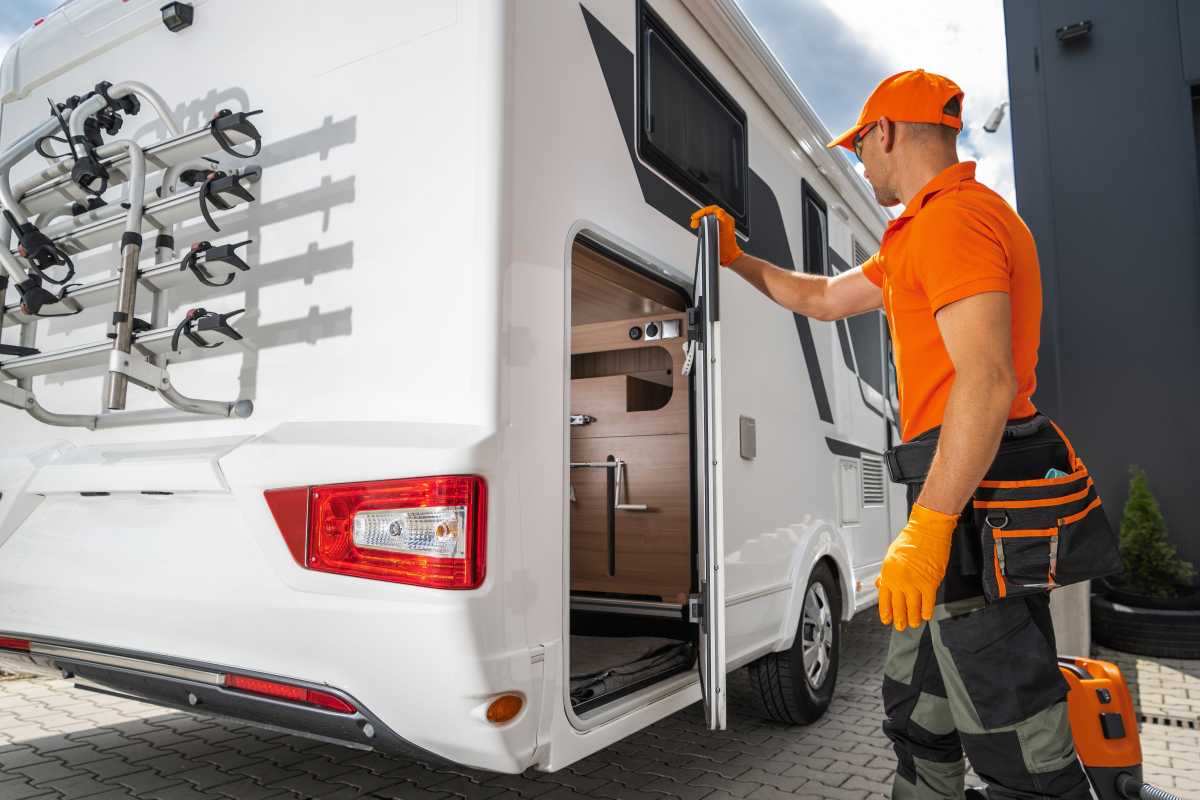Owning an RV is a ticket to freedom, offering endless opportunities for adventure and exploration. However, to fully enjoy the RV lifestyle, proper maintenance is essential. Whether you’re a first-time RV owner or a seasoned road warrior, staying on top of upkeep ensures your vehicle remains safe, efficient, and ready for the road.
In this blog, we’ll explore practical tips to keep your RV in excellent condition. By following these guidelines, you can avoid costly repairs, extend your vehicle’s lifespan, and make every journey as smooth as possible.
Why RV Maintenance Matters
RV maintenance isn’t just about keeping your vehicle looking good—it’s crucial for safety, performance, and longevity. Neglecting regular upkeep can lead to mechanical failures, expensive repairs, and even cut short your adventures. By investing time in maintenance, you can:
- Avoid unexpected breakdowns.
- Enhance fuel efficiency.
- Preserve resale value.
- Ensure the safety of your passengers and belongings.
Now, let’s dive into the essential maintenance tasks every RV owner should know.
Essential RV Maintenance Tips
- Regular Inspections
Routine inspections are the foundation of RV maintenance. Aim to inspect your vehicle before and after every trip, focusing on:
- Tires: Check for proper inflation, tread wear, and signs of damage. Properly inflated tires improve fuel efficiency and reduce the risk of blowouts.
- Exterior Seals and Roof: Inspect seals around windows, doors, and the roof for cracks or leaks. Water damage can lead to costly repairs if left unaddressed.
- Lights: Ensure all exterior and interior lights are functioning properly, including brake lights and turn signals.
- Brakes: Listen for unusual noises and monitor brake performance.
- Keep Tires in Top Condition
Tires are one of the most critical components of your RV. Follow these tips to keep them road-ready:
- Maintain proper air pressure based on your RV’s manufacturer guidelines.
- Rotate tires regularly to ensure even wear.
- Replace tires every 5-7 years, even if they appear in good condition.
- Store your RV on leveling blocks to prevent flat spots during long-term storage.
- Change the Oil and Filters
Just like any vehicle, your RV’s engine needs regular oil changes. Consult your owner’s manual for specific intervals, but a general rule of thumb is every 3,000-5,000 miles for motorhomes. Don’t forget to:
- Replace the oil filter during each oil change.
- Check and replace air and fuel filters as needed to optimize performance.
- Maintain the Battery
A dead battery can ruin a trip before it begins. Keep your RV’s battery in good shape with these tips:
- Check battery charge levels regularly.
- Clean battery terminals to prevent corrosion.
- Disconnect the battery during long-term storage or use a trickle charger to maintain its charge.
- Check and Service the Water System
Your RV’s water system needs regular attention to ensure it stays clean and functional:
- Sanitize the water tanks and lines at least once per season.
- Check for leaks or cracks in hoses and fittings.
- Drain and winterize the system before storing your RV in cold climates to prevent freezing damage.
Seasonal RV Maintenance
Spring Maintenance
After winter storage, prepare your RV for the upcoming travel season:
- Inspect for Damage: Check for issues caused by cold weather, such as cracks or leaks.
- De-winterize the Water System: Flush antifreeze from the system and refill the tanks.
- Test Appliances: Ensure the refrigerator, furnace, and air conditioner are working properly.
- Repack Bearings: If your RV has wheel bearings, repack them to ensure smooth operation.
Summer Maintenance
During peak travel months, focus on keeping your RV cool and comfortable:
- Monitor Tire Pressure: Heat can cause tire pressure to fluctuate, so check it frequently.
- Clean the Air Conditioner: Remove debris and clean or replace the filters for optimal performance.
- Inspect the Roof: Look for damage from tree branches or sun exposure.
Fall Maintenance
As travel winds down, prepare your RV for storage or limited use:
- Clean and Store: Empty and clean the interior, removing food to prevent pests.
- Inspect Seals: Ensure all seals are intact to prevent water infiltration.
- Drain the Water System: Fully drain tanks and hoses to prepare for winterization.
Winter Maintenance
If you’re storing your RV during the colder months:
- Winterize the Water System: Use RV-specific antifreeze to protect pipes and tanks.
- Cover Your RV: Use a breathable cover to protect against snow, ice, and UV damage.
- Check Batteries and Tires: Store batteries in a warm, dry place and ensure the tires are properly inflated.
Bonus Tips for First-Time RV Owners
If you’re new to RV ownership, here are some additional tips to make maintenance easier:
- Keep a Maintenance Log: Record all inspections, repairs, and upgrades to stay organized.
- Invest in Quality Tools: An essential toolkit with wrenches, screwdrivers, and a tire pressure gauge will be helpful.
- Learn from Others: Join RV forums or local clubs to exchange tips and advice.
- Use Checklists: Create pre-trip and post-trip checklists to ensure nothing is overlooked.
Final Thoughts
Proper RV maintenance doesn’t have to be overwhelming. Following these tips and creating a regular maintenance routine can keep your vehicle in top shape and enjoy stress-free adventures. Remember, a well-maintained RV isn’t just an investment in your vehicle—it’s an investment in your freedom and enjoyment on the road.
So, grab your tools, check your calendar, and start building a maintenance routine that works for you. Happy travels!


